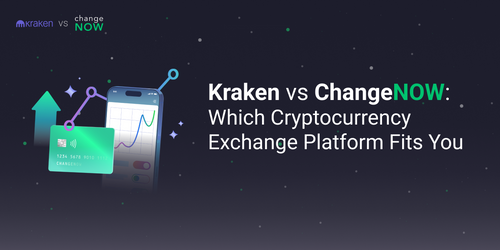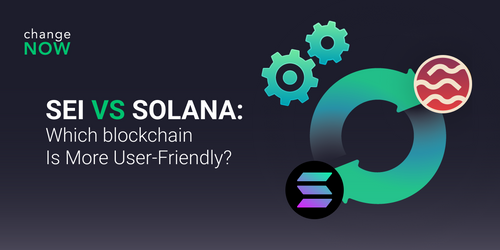What is Bitcoin Used for?
Key takeaways
- Main Bitcoin use cases today are a store of value and a means of everyday payments. BTC also drives peer-to-peer borderless transactions and serves as a means of exchange in unstable economies.
- To become a truly global currency for P2P exchange, Bitcoin has to overcome its scalability problem.
Originally designed as a means of everyday exchange, Bitcoin has been used for many other purposes ever since. The most prominent of them is a store of value — a way to preserve and increase capital. Some even say that the store of value is the only considerable purpose of Bitcoin. They also argue that the existing limitations in Bitcoin’s network won’t let it become the global means of everyday payments. But what are these limitations, and what are the other Bitcoin uses? Let’s see what’s the point of Bitcoin!
Bitcoin as global digital cash — is the dream about to come true?
In August 2020, Bitcoin peer-to-peer trading volumes reached a new all-time high since January 2018. Legal adoption isn’t also far behind: only this year, France likened Bitcoin to currencies, and Germany recognized it as a legal tender. Becoming global digital cash was the original Bitcoin purpose. Satoshi Nakamoto created the first cryptocurrency as an alternative to regular money. In his forum posts, he criticized the existing financial system: we trust banks not to debase our currencies, but they create credit bubbles instead.
We don’t truly own our money in this system — but the banks and governments do, and they can do anything they want with it. Also, Nakamoto pointed out the problem of high fees that make micropayments impossible. All this was what Bitcoin had been designed to solve. And it did succeed in some way. P2P transactions worth $95 million weekly is a serious milestone. However, there’s still a downside to that, and its name is the Bitcoin scalability problem. Briefly, the volume and the frequency of Bitcoin blocks mined are limited, which creates a tangible limit to the growth of Bitcoin transactions number. BTC is only capable of 7 transactions per second, while for instance, Visa is doing 24,000.
The number of Bitcoin transactions per month hasn’t seen growth since 2017[/caption] Let’s say you stopped by a Starbucks to get a coffee with Bitcoin. The transaction will only be processed in 10 minutes at best, but this is in case it gets into the very first block. If the network is congested, it will get at least to the 2nd block, which is already 20 minutes. Your coffee got cold. But there are so-called layer 2 solutions such as Lightning Network designed to solve the Bitcoin scalability problem. This is a payment protocol that operates on top of Bitcoin’s blockchain. Its goal is to implement superfast transactions between Bitcoin’s nodes — on the second layer over the blockchain, not on the blockchain itself. It doesn’t work well yet, but if it succeeds, Bitcoin will skyrocket as a means of everyday payments. However, even without Lightning Network, Bitcoin is accepted in quite many places. Let’s see what they are.
What can you pay for with Bitcoin
In early 2020, we learned from a survey that 36% of small businesses in the USA accept Bitcoin. Such giants as Microsoft and Wikipedia do so, too. The Cryptwerk service suggests over 5,000 of places where you can pay with BTC. Check it out — your favorite restaurant might be among them! And if it’s not, look into the global Bitcoin ATM map to easily cash out your BTC at any time. About 10,000 Bitcoin ATMs worldwide[/caption] Let’s see what services you can access with Bitcoin today: Traveling. Many hotels, car rental services, cruise companies, estate agencies accept Bitcoin — so if you’re a crypto nomad, the world becomes more and more welcome to you every day! Entertainment. Fresh news — Pornhub accepts Bitcoin and other cryptos now! Gam[bl]ing. Bitcoin has started to draw the attention of this industry’s top players. Recently, an American sports media conglomerate ESPN Global announced launching a blockchain-powered gaming platform that will support Bitcoin. In general, blockchain tech looks quite attractive to the gaming industry. And as for today, there are dozens of gambling websites of all sorts, including casinos, where you can pay with Bitcoin. By the way, we have our solution for accepting crypto called NOWPayments. 50+ cryptos, minimal fees of 0.4%, a user-friendly interface, and an extremely helpful support team are at your service!
Store of value — how Bitcoin saves your money
The world is very volatile, and many assets lose in price rapidly. People seek the means to preserve and multiply their funds in such conditions. Traditionally, these are gold and the US Dollar. They are not ideal, too — the dollar gets printed at a frantic pace and may lose in price. And here, Bitcoin comes on stage. It’s yet volatile, but many people believe in it and put their money in it. There’s a whole HODLers movement whose philosophy is to buy Bitcoin and never sell it whatever happens. Bitcoin is frequently compared to gold in terms of its capability to store value. Here is why people are so optimistic about Bitcoin in the long term:
- Bitcoin is the first, the most well-known, and the most secure cryptocurrency.
- Transparency. It is clear how the Bitcoin network functions and no one can radically change that. Every transaction is made public in the blockchain — it’s easy to check everything.
- Scarcity. There is a limited supply of 21 million Bitcoins that will be reached in the 22nd century. The demand for Bitcoin is growing, and the price goes alongside — BTC’s got a terrific ROI (7,397.55% as of September 7, 2020).
- We are in a bull run now. One of the key reasons for that is the Halving: data shows that BTC appreciates after the mining rewards are cut in half. We expect Bitcoin to grow further in 2020.
- It’s easy to invest in Bitcoin. You can buy it and just hold it. Compared to daily trading, it’s much less risk. That’s why investing in Bitcoin is considered one of the most accessible and lucrative ways to profit from crypto in 2020.
- Bitcoin is easy to store. No bank accounts, no vaults — just a little flash drive-like Ledger wallet, and you’re all set.
https://www.instagram.com/p/CAfqafPAW5c/
P2P borderless transactions
People use Bitcoin to send money to each other. The benefit here is that you send the funds directly to the recipient — without any third parties and intermediaries. Here’s how a regular money transaction goes. Say, you need to make a transfer from the USA to Thailand. You stop by the bank, send the money, which goes to a dozen intermediary bank structures for a few days before getting to your recipient. With Bitcoin, you’re guaranteed that the whole way will only take 10 minutes or a little more, depending on the network congestion. It’s not only fast but very secure. The Bitcoin blockchain is the most secure because to hack it, you need to get control over 51%+ of the network’s hashrate, which is almost impossible today. It’s cheaper. For instance, in Africa, you have to pay up to 9% for a $100 remittance. It’s way less with Bitcoin.
Local currency substitute in unstable economies
Bitcoin is volatile and can drop in price quite dramatically, but it goes back up rapidly and is far less volatile than some local currencies. For instance, Venezuelan Bolivar is prone to plunging with a yearly inflation rate of 10,000,000%. What happens if a currency depreciates so dramatically? Say, you get 1,000 of a fiat currency today and can go buy food and clothes with it, and tomorrow you won’t even be able to buy a loaf of bread with the same sum. This is why Zimbabwe has started using US Dollars instead of the Zimbabwean dollar at some point. You could barely buy anything with this 100 trillion bill[/caption] But since recent times, fighting inflation is what Bitcoin is used for in some countries. In February 2019, interest in Bitcoin explicitly surged in Venezuela after the country hit an 80,000% inflation rate. Something alike is happening in Nigeria. And in general, Bitcoin in Africa is on the rise — primarily as a store of value.
Final words
These were examples of what is Bitcoin used for. Data shows that a store of value is a more significant example of how Bitcoin is used rather than a means of everyday payments. However, even 2 years ago, 25% of Europeans considered Bitcoin as a future of spending online, and we’re also expecting layer 2 scaling solutions. For what it's worth, many people invest in Bitcoin today amid the after-halving bull run news. Seize the moment — buy some BTC on ChangeNOW with your Visa or MasterCard in 10 minutes NOW!





